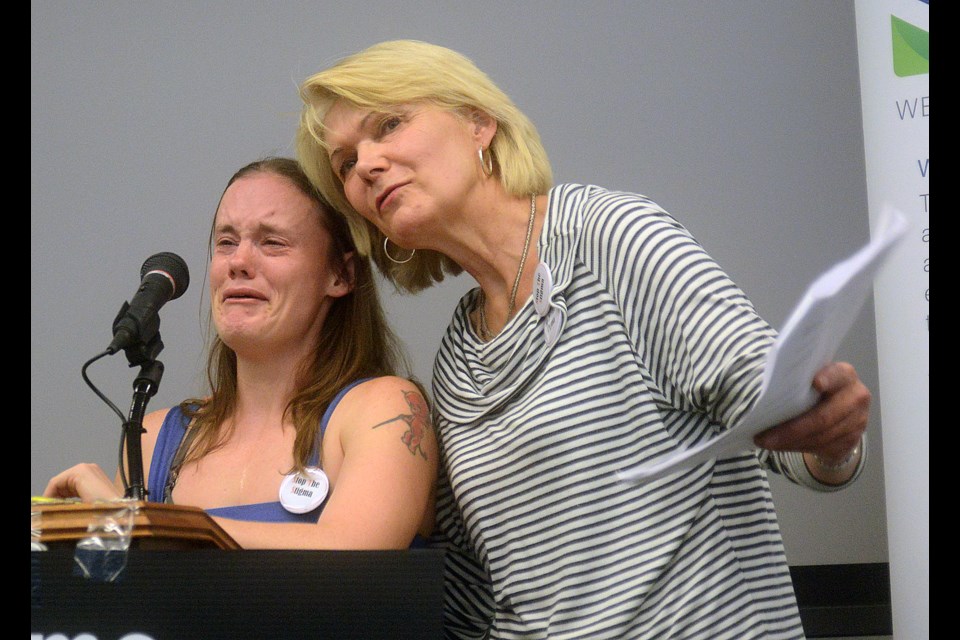They stepped up to the podium at City Hall on Friday, one after the other: people who know first hand about the stigma of addiction substance use and how that is counterproductive to dealing with the issue.
Alcoholics, recovering drug addicts, family members of those battling addiction all urged the community to listen to those who have lived it in trying to deal with it at the Stop The Stigma rally at City Hall.
“That lived-experience perspective and voice is missing from 95 to 99 per cent of the research out there,” said Julia Read a PhD student at Wilfrid Laurier University and former addict.
“I may be one of the very few people who is just so fed up with having my life explained to me by people who haven’t been through it,” Read said.
“While there is so much positive energy in this room, and people are doing such great work, it isn’t enough. Things are not changing and people are dying,” Read said.
“Let’s go beyond harm reduction and lets go for a human rights approach.”
She was one of several who said the City of Guelph needs a safe injection site.
Until we listen to those that have lived it, until we treat them as human beings and not as users and addicts, the stigma won’t end, was one of the big messages.
“We’re here to replace marginalization with support and services. We’re here because we see the ‘us’ in substance abuse,” said Adrienne Crowder, manager of the Wellington-Guelph Drug Strategy.
“Stigma exists,” said Bob, an alcoholic who hasn’t had a drink in seven years.
“From the age of 22 to the age of 58 when I got sober, I wanted to stop. I was full of shame, guilt, resentment and I wanted to stop and dammit I couldn’t,” Bob said. “Shame and guilt are attached to stigma.
“It’s not a moral failing, it’s a disease … there’s not one real drunk or real addict that wants that life. But we can’t get out. It wants me dead. It will settle for me drunk and stoned, but it wants me dead.”
We need a conversation. More of a conversation than we are currently having, Bob said, because you cannot legislate recovery.
“The solution has to be in the conversation, in Guelph,” Bob said.
Roughly 150 people jammed a City Hall committee room, listening not only to speakers who have lived with substance use and abuse over the years, but also from those in our community who are there to help.
Those included Mayor Cam Guthrie, Police Chief Jeff DeRuyter, Emergency Services chief Stephen Dewar and representatives from public health and the Wellington-Guelph Drug Strategy.
“They are human beings. Whole human beings. They’re not the addictions, they’re not the consequences of their addictions, they are people and we need to treat them as such,” Rita Sethi, Director of Community Health & Wellness with Wellington-Dufferin-Guelph Public Health said accepting and acknowledging
“The stigma and shame associated with seeking support or even admitting the need for help is so debilitating that many delay or even refuse help because of it,” Sethi said. “This cannot continue.”
The Mayor said it was important the event be held at City Hall to show that there is support from the city.
“I’m glad to be able to stand here with you together, not me above you, but all here equal as one in saying we need to stop that stigma when it comes to addictions and substance abuse,” Guthrie said.
